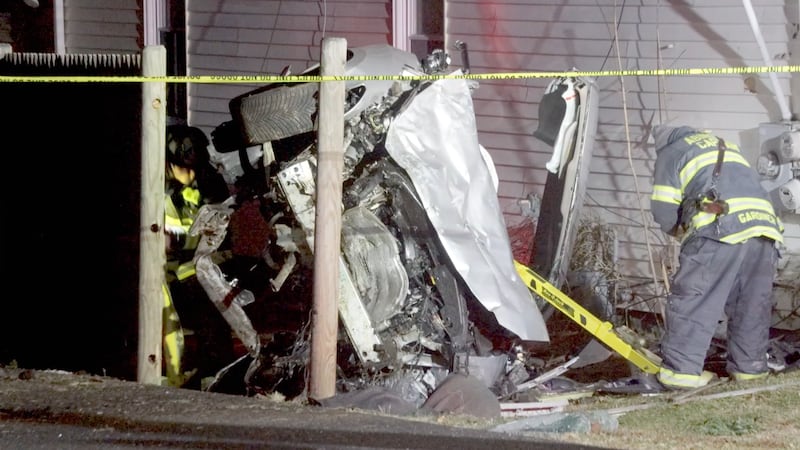BOSTON — The U.S. Attorney’s Office in Massachusetts announced on Tuesday that three people - all with ties to Boston - have been charged in separate Chinese-related cases, all of which include charges of making false statements to the United States Government.
One of the three charged is the Chair of Harvard University’s Chemistry and Chemical Biology Department, while the other two are Chinese nationals, one of which studied at Boston University’s Department of Physics, Chemistry and Biomedical Engineering while the other researched at Beth Israel Deaconess Medical Center in Boston.
FBI also charges two Chinese nationals. One did research at B.U. but was an officer with Chinese army. She was ordered to do research on US military sites and look into two researchers who specialized in robotics and computer science. @boston25 https://t.co/W69z1CF1b3
— Joy Dumandan (@JoyDumandanTV) January 28, 2020
Dr. Charles M. Lieber, who has been at Harvard since his hiring in 1991, was charged in a criminal complaint with making false statements to the U.S. Government twice. According to court documents, those statements were allegedly made by Lieber in April 2018 and January 2019.
>>>Read the criminal complaint here
The U.S. Department of Justice [DOJ] is alleging that Lieber, “became a ‘Strategic Scientist’ at Wuhan University of Technology in China,” in 2011, something that was unknown to Harvard, and that he participated in ‘China’s Thousand Talents Plan,’ for roughly five years between 2012 and 2017. The DOJ described China’s Thousand Talents Plan as a form of recruitment for “high-level scientific talent,” to help further China’s development in science, economics and overall national security.
“These talent programs seek to lure Chinese overseas talent and foreign experts to bring their knowledge and experience to China and reward individuals for stealing proprietary information,” the DOJ said of the plan in their release about Lieber’s, Ye’s and Zheng’s arrests.
During his time working with Wuhan University of Technology [WUT] and the Thousand Talents Plan, Lieber was paid $50,000 per month in U.S. dollars, investigators allege. They added that Lieber was given up to $158,000 per year for living expenses, along with a $1.5 million award for establishing a research lab at WUT.
Lieber is accused of lying to government investigators about his involvement with the Thousand Talents Plan as well as his affiliation with WUT. Investigators also allege that Lieber caused Harvard to provide false statements to the National Institutes of Health after they checked with the university to see if Lieber had failed to disclose his relationship with both WUT and the Thousand Talents Plan.
The professor was required to disclose, “significant foreign financial conflicts of interest, including financial support from foreign governments or foreign entities,” since he has received more than $15 million in grants from the Department of Defense and the National Institutes of Health since 2008.
Harvard University placed Lieber on administrative leave and gave the following statement to Boston 25 News regarding the charges brought against him:
The charges brought by the U.S. government against Professor Lieber are extremely serious. Harvard is cooperating with federal authorities, including the National Institutes of Health, and is initiating its own review of the alleged misconduct. Professor Lieber has been placed on indefinite administrative leave.”
— Harvard University
If convicted, Lieber faces a fine of $250,000 and up to five years in prison. He is being held until his next court appearance on Thursday.
Bob Kinder, a veteran and national security expert, tells Boston 25 News that Dr. Lieber’s past research with the Department of Defense and National Institute of Health indicated he knew his research was confidential.
“He was clearly briefed by NIH and DOD on the sensitivity of his work and talking to foreign officials,” said Kinder. "He was very likely granted at an interim security clearance if not a full secretly security clearance to conduct his work.”
Yanqing Ye, who studied at BU from October 2017 through April 2019, faces four different counts in her case, according to an official indictment from the U.S. District Court in Massachusetts. Those charges are: visa fraud, making false statements to the U.S. Government, acting as an agent of a foreign government, and conspiracy.
Investigators allege that Ye lied on her visa application about her service with a military academy in China led by the Chinese Communist Party. She identified herself as a student, though DOJ claims that she, “is a Lieutenant of the People’s Liberation Army, the armed forces of the People’s Republic of China, and member of the Chinese Communist Party.”
Ye is accused of continuing to serve as a lieutenant for the People’s Liberation Army [PLA] while she was at BU. During her time at the university, Ye completed, “numerous assignments from PLA officers such as conducting research, assessing U.S. military websites and sending U.S. documents and information to China,” according to DOJ allegations.
During an April 2019 interview with investigators, Ye allegedly said she had little contact with two professors at the National University of Defense Technology [NUDT], the military academy where she had served in China. However, authorities say that her claim was deemed a lie after they searched Ye’s electronics at Logan Airport in Boston.
“At the direction of one NUDT professor, who was a PLA Colonel, Ye had accessed U.S. military websites, researched U.S. military projects and compiled information for the PLA on two U.S. scientists with expertise in robotics and computer science,” the DOJ said in their release.
Ye then admitted her affiliation with the Chinese Communist Party and her rank as a lieutenant with the PLA, according to investigators.
The Chair of Harvard University's Chemistry & Chemical Biology Department and two Chinese nationals have been charged in three separate China-related cases following investigations by @FBIBoston @DoD_IG @OIGatHHS @CBP@CommerceGov https://t.co/eGGgD57JaU pic.twitter.com/I0RJOh46MU
— FBI Boston (@FBIBoston) January 28, 2020
Zaosong Zheng was charged in an indictment with one count of smuggling goods from the United States along with one count of making false statements to the U.S. Government. Authorities say Zheng was researching cancer cells at Boston’s Beth Israel Deaconess Medical Center from September 4, 2018 through December 9, 2019.
Investigators allege that Zheng stole 21 vials of, “biological research,” on December 9, 2019, and that he tried to board an airplane with them at Logan Airport. Federal officials at the airport found the vials inside one of his bags. The DOJ claims that Zheng originally lied to officers about what was in his bag, but later told them about the vials.
“Zheng stated that he intended to bring the vials to China to use them to conduct research in his own laboratory and publish the results under his own name,” the DOJ’s release alleges.
According to his indictment, Zheng entered the U.S. through a J-1 visa application that was sponsored by Harvard University.
>>>MORE: Health officials: 2 people in New Hampshire being tested for coronavirus
© 2020 Cox Media Group





